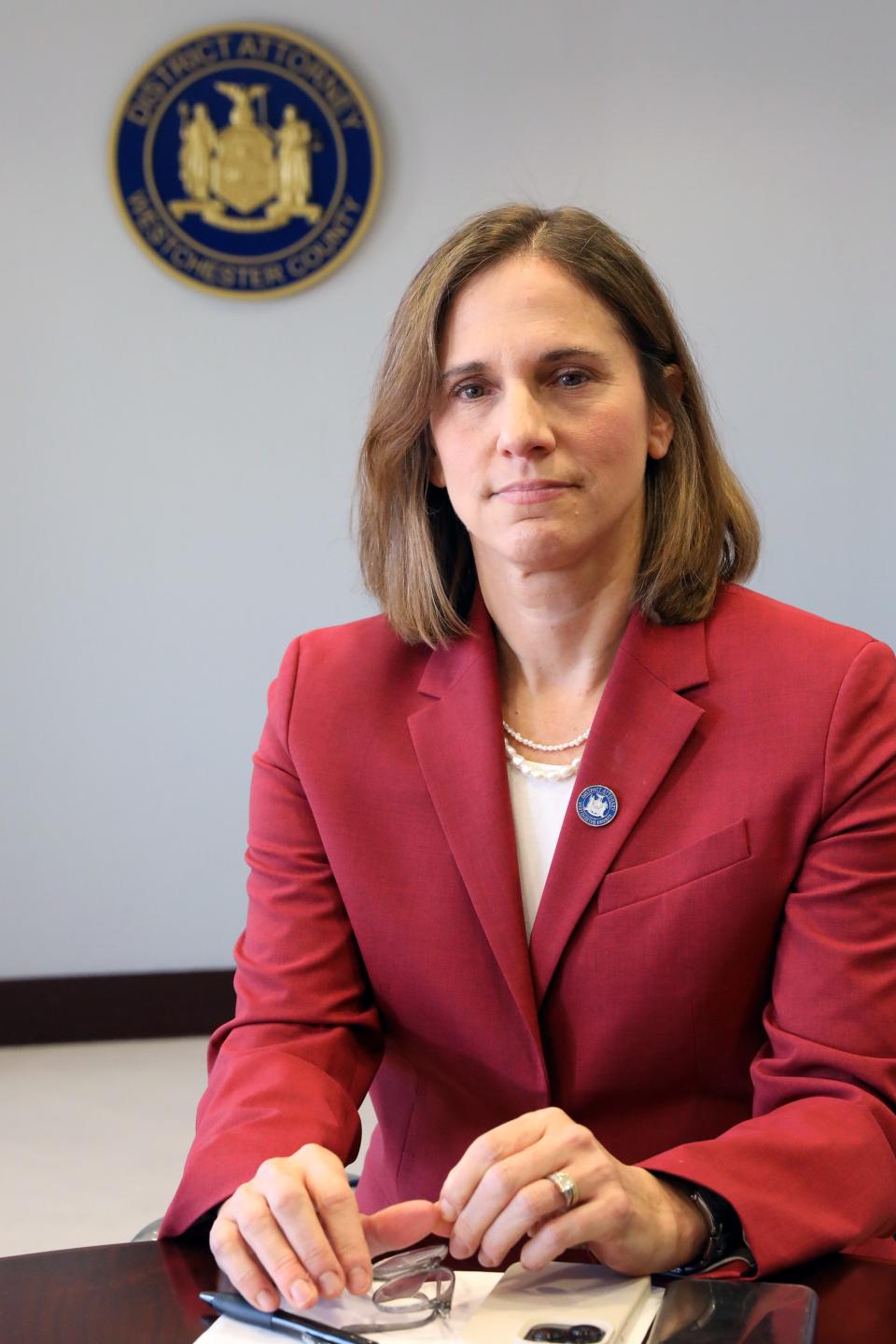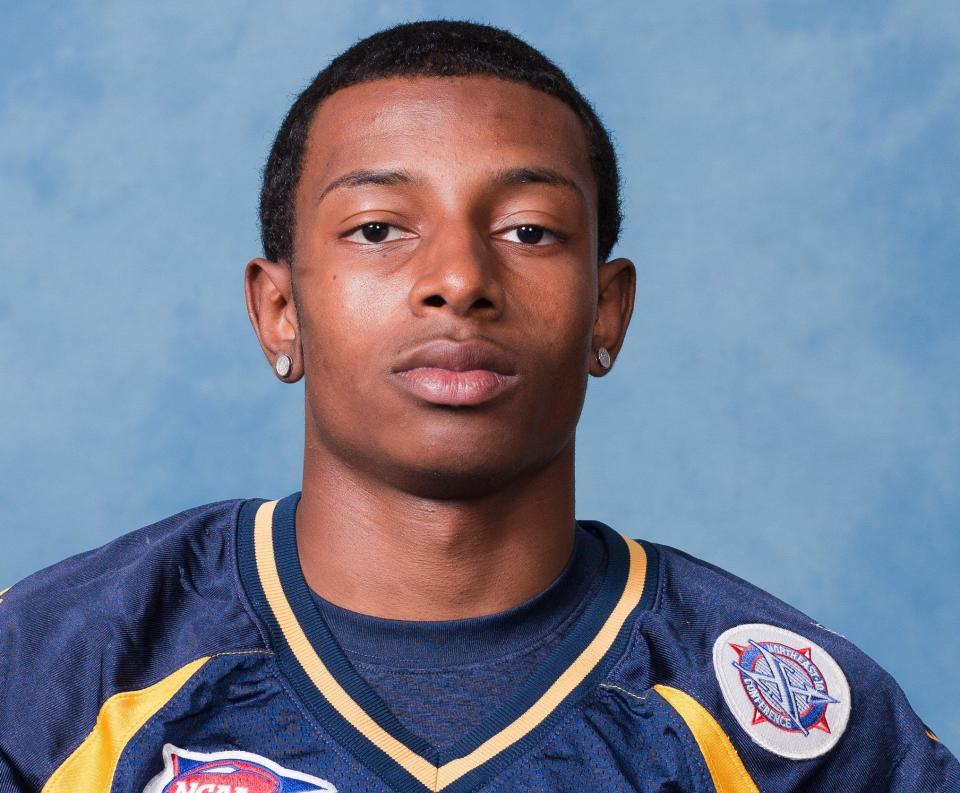Westchester DA will not reconvene grand jury over police killings of Henry, Chamberlain
A special review of the police killings more than a decade ago of Kenneth Chamberlain Sr. and Danroy Henry Jr. found no grounds to reconvene a grand jury to consider criminal charges against the officers responsible for their deaths, Westchester District Attorney Mimi Rocah announced Wednesday morning.

The review, which Rocah commissioned in June 2021, six months after she was sworn into office, was assisted by retired federal judge John Gleeson and concluded that none of the factors necessary to get a court-ordered new grand jury were present.
Grand juries had previously declined to indict the white officers involved in the shootings of Chamberlain and Henry, who were both Black, and reviews by the U.S Attorney's Office ended with no federal civil rights charges in either case.
But the latest review offered no new details about what charges the grand juries were asked to consider. That is a critical question for the victims' families who believe that the shrouding of grand jury proceedings in secrecy means full transparency remains elusive for how the cases were handled.
The Kenneth Chamberlain Sr. case
Chamberlain, 68, was killed by White Plains police Officer Anthony Carelli on Nov. 19, 2011, when police responded to Chamberlain's apartment due to an accidentally activated medical alert device. Chamberlain stated that he never called them and that he was fine. Despite this, police tried to force their way into the apartment after he appeared to brandish a knife, even as a relative who lived in the building stood outside and sought to speak with him to de-escalate the situation.
Chamberlain, a retired U.S. Marine who suffered from mental illness, became frightened and agitated during the course of the encounter. When police managed to completely pry Chamberlain's door off its hinges, the confrontation turned deadly. Carelli shot Chamberlain after other officers tried but failed to incapacitate him with a Taser and bean-bag rounds fired from a shotgun.
The officers claimed Chamberlain was about to stab a police sergeant when Carelli fired.
The Danroy Henry Jr. case
Henry, known as DJ, was a 20-year-old Pace University junior from Easton, Massachusetts, and played defensive back on the school football team. He was fatally shot early on Oct. 17, 2010, by Pleasantville police Officer Aaron Hess as he drove through the Town Center parking lot in Thornwood.
Hours after Pace's homecoming game, Henry, a teammate and another friend left Finnegan's when the owner closed the bar following a brawl in which Henry and his friends were uninvolved. When police from Mount Pleasant and Pleasantville responded to the large crowd outside, the three men were in Henry's Nissan Altima in the fire lane.

Henry began pulling away after an officer tapped on his window. Hess stepped in front of the car, claiming later he thought the officer had been hit. He tried to get the car to stop but ended up on the hood, at which point he fired four shots into the windshield.
Henry was killed and one of the friends grazed by a bullet.
In announcing the review of the two cases, Rocah explained in 2021 that "we have appropriately higher expectations for scrutiny of police encounters with mentally ill and unarmed people and for prosecutors’ responses to such incidents."
Review: standard not met for new grand jury
The review of the grand jury presentation was conducted pro bono, headed by Gleeson and Douglas Zolkind, partners at the law firm of Debevoise & Plimpton. It found that none of the three standards generally relied upon for a judge to authorize a new grand jury — new evidence; a finding that the original grand jury acted in an irregular manner; or that its investigation was not complete and impartial — had been met.
In addition to the findings from Gleeson and Zolkind, Rocah's office offered an official apology to both families and outlined recommendations for avoiding these kinds of deadly confrontations in the future — including enhanced training for police officers when dealing with moving vehicles and de-escalation training for situations involving a mental health crisis.
"When those of us in the criminal justice system acknowledge where we can do better, the increased transparency leads to more faith and trust in the system," Rocah said in a statement. "More critically, it allows for prosecutors and law enforcement alike to take steps to ensure that tragedies like these are not repeated.”
Without singling out one of her predecessors, former Westchester County District Attorney Janet DiFiore, Rocah sought to distinguish her approach to these cases from how they were previously handled. Rocah said that her office would "strongly consider" not prosecuting witnesses to police shootings on low-level charges, as happened in the Henry case.
Rocah further emphasized that her office would continue to present "all viable charges" to a grand jury, though it is not known exactly which charges DiFiore's office asked grand jurors to consider in 2011 and 2012.
The killings occurred when DiFiore was the district attorney. She detailed her prosecutors' presentations to the grand juries as exhaustive and thorough. She went on to become New York's chief justice in 2016 until her retirement last year.
Lawyers for families react
Mayo Bartlett, a lawyer for the Chamberlain family, said they appreciated the review but that it did not go far enough as "it still leaves questions unanswered about ... what transpired with this grand jury."
He said it was fair to infer from Rocah's recommendation about "viable charges" that grand jurors in Chamberlain's killing were not presented with a variety of potential charges.
Rocah's office would not comment on that, citing grand jury secrecy laws. And they did not immediately respond to questions about whether prosecutors more recently sought court permission to release further information about the grand jury presentations or even to have the grand jury transcripts unsealed.
Michael Sussman, who represented the Henry family in connection with their civil suit, said that the family was appreciative of Rocah's efforts to review the case. However, he emphasized that "justice cannot be done," given the foreclosure of any criminal prosecution.
"We appreciate [Rocah's] recognition that the Henrys were poorly treated by one of her predecessors, and certainly by various police authorities throughout this process," he said.
A $21 million wrongful death lawsuit brought by Chamberlain's family has been winding its way through the legal system for over a decade. A jury found in favor of the city and Carelli in 2018 but the U.S. Court of Appeals for the Second Circuit is now considering whether pieces of the lawsuit may proceed to a new trial.
Henry's family settled their lawsuits against Pleasantville and Mount Pleasant for $6 million and $250,000, respectively. They established the DJ Henry Dream Fund, which provides financial support for children and young adults to participate in sports, the arts and other programs.
Carelli was diagnosed with post-traumatic stress disorder in connection with the Chamberlain killing and retired in 2017 on disability, though it is not clear if those two events are related. Hess, whose knee was injured during the Henry shooting, retired on disability in 2012.
This article originally appeared on Rockland/Westchester Journal News: Westchester DA won't reconvene grand jury over two police killings.

